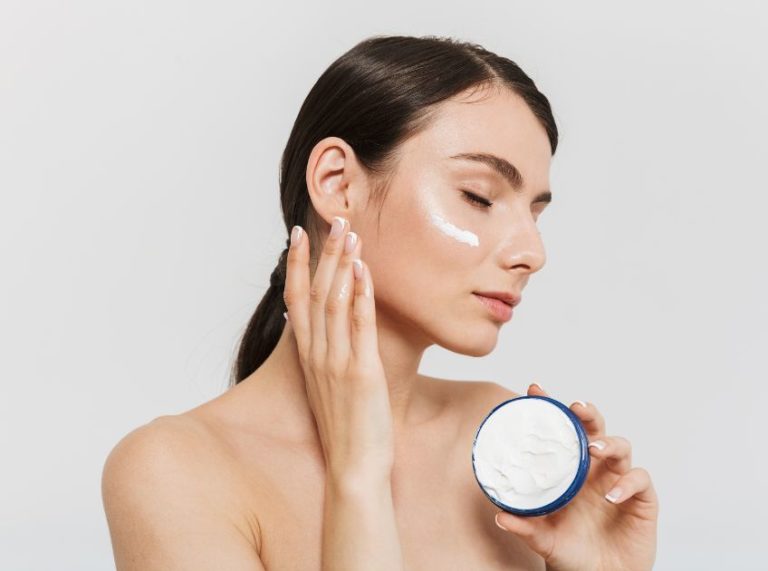
Important: This article is for informational purposes only. Please read our full disclaimer for more details.
Choosing the right moisturizer for your skin can feel overwhelming, especially with so many options available. Should you go for a lightweight gel moisturizer or a richer cream? The answer depends on your skin type, preferences, and specific needs. Let’s break down the key differences, benefits, and ideal uses for each type of moisturizer to help you make the best choice.
Key Differences Between Gel and Cream Moisturizers

1. Texture and Composition
- Gel Moisturizers: These are water-based, lightweight, and have a jelly-like consistency. They absorb quickly into the skin without leaving a sticky residue. Gels often contain humectants like hyaluronic acid, which draw moisture into the skin, making them perfect for oily or acne-prone skin types.
Top Picks:
- Neutrogena Hydro Boost Water Gel: Packed with hyaluronic acid for instant hydration.
- Clinique Moisture Surge 72-Hour Hydrator: A lightweight option for combination skin.
- Cream Moisturizers: Creams are thicker and richer, often containing oils and fats that create a protective barrier on the skin. While they take longer to absorb, they offer long-lasting hydration, ideal for dry or mature skin.
Top Picks:
- CeraVe Moisturizing Cream: Infused with ceramides for intense hydration.
- Weleda Skin Food Original Ultra-Rich Cream: Perfect for dry, sensitive skin.
2. Hydration Levels
- Gel Moisturizers: While these provide a quick burst of hydration, their lightweight nature means they may evaporate faster, requiring reapplication. They’re excellent for providing a matte finish and controlling excess oil.
Top Picks:
- L’Oréal Paris Revitalift Hyaluronic Acid Gel Cream: Targets fine lines and dehydration.
- L’Oréal Paris Revitalift Hyaluronic Acid Gel Cream: Targets fine lines and dehydration.
- Cream Moisturizers: These deliver deeper hydration and are better at locking in moisture. They’re especially effective for combating dryness and nourishing the skin barrier.
Top Picks:
- Olay Regenerist Micro-Sculpting Cream: A powerhouse for anti-aging and hydration.
- First Aid Beauty Ultra Repair Cream: Ideal for eczema-prone or very dry skin.
When to Use Each Type
Gel Moisturizers Are Best For
- Oily or Acne-Prone Skin: The lightweight formula helps control sebum production without clogging pores.
- Hot or Humid Weather: Gels provide hydration without heaviness, making them ideal for warmer climates.
- Makeup Application: Gels create a smooth base without adding extra shine or greasiness.
Top Picks:
- La Roche-Posay Effaclar Mat Oil-Free Gel Moisturizer: Great for controlling sebum.
- Bioderma Sebium Hydra: A lightweight option for acne-prone skin.
Cream Moisturizers Are Best For
- Dry or Sensitive Skin: Creams nourish and protect the skin barrier, relieving dryness and irritation.
- Cold Weather: The thicker texture shields skin from harsh environmental conditions.
- Mature Skin: Creams replenish lost moisture and improve elasticity.
Top Picks:
- Eucerin Advanced Repair Cream: Clinically proven for very dry skin.
- Drunk Elephant Lala Retro Whipped Cream: Luxurious and effective for mature skin.
Pros and Cons of Each Moisturizer
Gel Moisturizers
Pros:
- Lightweight and non-greasy.
- Absorbs quickly, great for oily or combination skin.
- Helps prevent excess oil production.
Cons:
- May not provide enough hydration for dry or mature skin.
- Evaporates quickly, requiring reapplication.
Cream Moisturizers
Pros:
- Provides deep hydration and nourishment.
- Forms a protective barrier to lock in moisture.
- Ideal for dry, sensitive, or aging skin.
Cons:
- Can feel heavy or greasy for oily skin types.
- May take longer to absorb, especially in hot climates.
How to Choose the Right Moisturizer for You
1. Assess Your Skin Type
- Oily/Acne-Prone Skin: Opt for lightweight, oil-free gel moisturizers.
- Dry or Mature Skin: Look for cream moisturizers rich in oils, ceramides, and peptides.
- Combination Skin: Experiment with gels for daytime and creams for nighttime.
2. Consider the Climate
- Hot and Humid: Stick to gel moisturizers for a fresh, lightweight feel.
- Cold and Dry: Use cream moisturizers to lock in hydration and protect the skin.
3. Look for Additional Benefits
- Anti-Aging: Choose cream moisturizers with retinol, peptides, or collagen.
- Brightening: Opt for gel moisturizers with Vitamin C or niacinamide.
Top Picks:
- Tatcha The Water Cream: A luxurious, lightweight option.
- Kiehl’s Ultra Facial Cream: Balances hydration for all skin types.
Conclusion
Both gel and cream moisturizers are excellent for hydration, but their effectiveness depends on your skin type and climate. Gel moisturizers work wonders for oily and combination skin, while cream moisturizers provide the deep nourishment dry and mature skin craves. Ultimately, finding the right one for you may require a bit of experimentation.
















